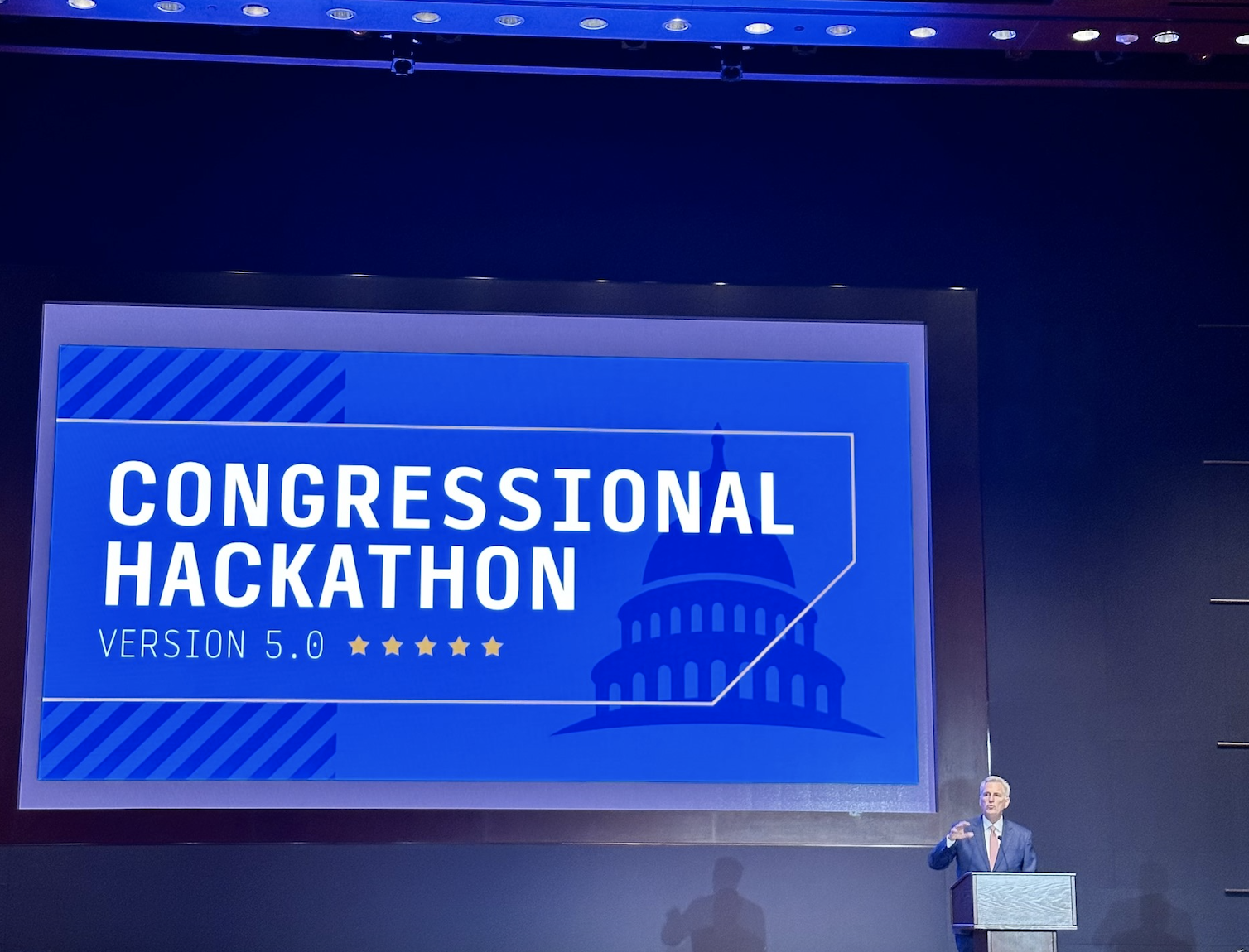
On September 14th, 2023, many witnessed the 5th iteration of the Congressional Hackathon, an event that has grown from an experimental gathering to a well-established forum for brainstorming technological solutions to the legislative branch’s most pressing issues. As proud participants, we’d like to share some insights from the hackathon and shed light on the revolutionary tech solutions pitched.
The inaugural hackathon’s atmosphere was much like today’s, marked by the ascent of artificial intelligence. At that time, budding technologies like social media and other digital platforms were driving innovative ideas. Fast forward to now, the hackathon has become an institutionalized tradition. It was most recently held on September 14, 2023, receiving significant support from the House’s Office of the Chief Administrative Officer. Throughout its iterations, the Hackathon has demonstrated adaptability, remaining steadfast even amidst changing political landscapes and a growingly polarized climate.
The Hackathon was abuzz with pitches focused on aiding Congress with tasks such as case management, scheduling, information abstraction, and document comparison. The key trend? The majority of the solutions revolved around Software-as-a-Service (SaaS) products. The emphasis was on providing Congress with custom, efficient tools. However, there were concerns about the ownership and maintenance of these tools by external companies, which could pose challenges down the line.
We were thrilled to witness the plethora of ideas that resonated with our observations from the event. Our own observations highlighted the SaaS-centric nature of the solutions presented. This shift is indicative of the evolving tech landscape and Congress’s ever-growing need for tailored solutions.
The steadfast growth and institutionalization of the Hackathon aren’t mere coincidences. They reflect the event’s positive impact on legislative tech over the years. Ideas discussed in previous hackathons have come to fruition, like the API for Congress.gov, digital intake forms for constituents, and the transformation of draft legislation from PDFs to more user-friendly formats.
Take, for instance, TourTrackr – a hackathon brainchild. This application, now employed in over 125 congressional offices, aids staff in efficiently organizing tours for constituents, a task that was previously mired in cumbersome paper and Excel record-keeping.
The Hackathon’s future is filled with promise. This year, the event’s focus seemed to skew toward the utilization of artificial intelligence (AI) in the legislative process. AI’s potential for the legislative workflow, constituent casework, and community engagement was palpable in the room, suggesting a shift in how Congress may operate in the future.
While the Hackathon has new faces, such as Minority Leader Hakeem Jeffries office representatives, the mission remains consistent: to transform and modernize Congress’s approach to technology. As Jeffries aptly put it, the goal is to make Congress “more transparent and accessible.”
It’s events like the Congressional Hackathon that rekindle our faith in the intersection of tech and governance. Yesterday, we didn’t just witness a gathering of great minds; we saw the blueprint for a more efficient, innovative, and transparent legislative future. And for zCore Group, it was an honor to be a part of this journey.